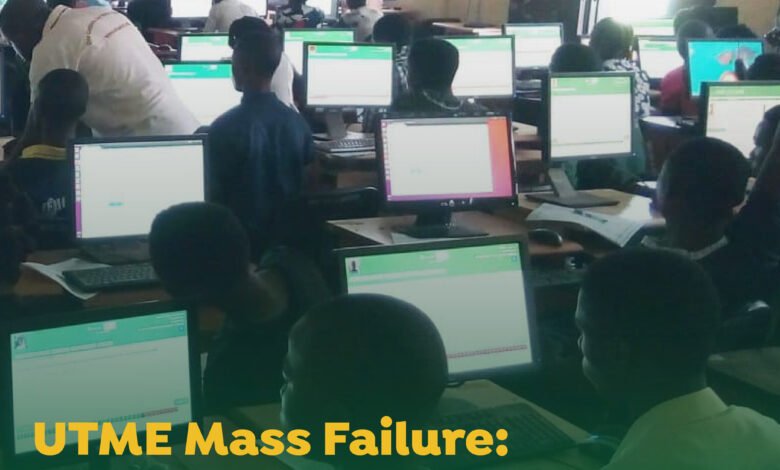
The underwhelming performance of students in the 2024 Unified Tertiary Matriculation Examination, UTME, has brought the state of education in Nigeria to the forefront of national discourse.
While the Joint Admission and Matriculation Board (JAMB) has faced criticism, the condemnations haven’t answered the question of why education standards continue to fall.
Students, parents, and other stakeholders have taken to various platforms to accuse JAMB of orchestrating the mass failure.
According to JAMB, 76% of the 1.9 million students who sat for the computer-based examination between April 19 and 29 scored below 200, while the remaining 24% scored above 200.
The exam body also noted that “64,624 results are under investigation for verification, procedural investigation of candidates, centre-based investigation and alleged examination misconduct.”
Outrage over mass failures isn’t a new phenomenon. Similar outrage greeted the 2021 UTME results, with JAMB attributing the mass failure to the COVID-19 pandemic.
This time, however, the cause remains unclear, although many point to the pervasive distraction of social media.
Complaints During The 2024 UTME
Complaints during the 2024 UTME were numerous. Some students were scheduled for the 7 am exam without considering their age, travel distance, or the country’s security concerns, leading to missed exams.
Others encountered server issues, preventing them from logging in. JAMB did respond swiftly to these technical glitches.
Fingerprint concerns also surfaced. Students who previously registered without issue suddenly faced difficulties during the exam.
JAMB attributed this to the use of “abrasive substances” damaging fingerprint whorls, prompting them to warn against such practices.
Who bears the blame for this mass failure?
Neither students nor JAMB readily accept responsibility. Education experts largely point to students’ inadequate preparation, prioritizing social media platforms like Facebook, X (formerly Twitter), Instagram, and TikTok over academic pursuits.
Beauty Oduali-Olusakin, a Facebook user, highlighted various factors contributing to the poor performance, including inadequate preparation, computer issues, and examination fever.
“A lot of factors are responsible… Some children didn’t prepare, some had computer issues, some were late, some had exam fever, some couldn’t manage their time, some got sick.
“Some didn’t open their books at all for those exams but just came because of their parents. Some wrote to fail because they didn’t want to go to higher institutions.
“Some due to unnecessary delay were just very tired and probably forgot most of what you read. Some didn’t even have ideas about the questions asked because they got to SSS classes by crooked means.” she noted
The Way Forward
Acknowledging that students hardly prepare for the UTME exam because of their access to various social media platforms, the Principal of the Government Secondary School Mpape in Abuja, Mr Steven Iyorha, said, “Parents should stop buying smartphones for their children. Emphasis should also be paid to extra moral lessons and computer training which most of our students lack. By putting these measures, the massive failure experienced in the last Jamb will be averted.”
A lawyer, Foundational Nupe Lawyer1, advocates for stricter admission requirements:
“People now gain admission with less than 200, or 180 and brag about it. Anyone with less than 50% scores should be made to repeat or retake the exams, regardless of the institution.” He further suggests that schools should not admit students who fall below a minimum grade level, as this practice “promotes laziness and mediocrity.”
Experts in the education sector agree the UTME mass failure is a wake-up call which demands a collective effort that goes beyond blame games.
They have called on parents, schools, and students to prioritize academic preparation and responsible technology use.
Simultaneously, JAMB and the education system need to address underlying issues like inadequate learning resources and potential exam irregularities.





